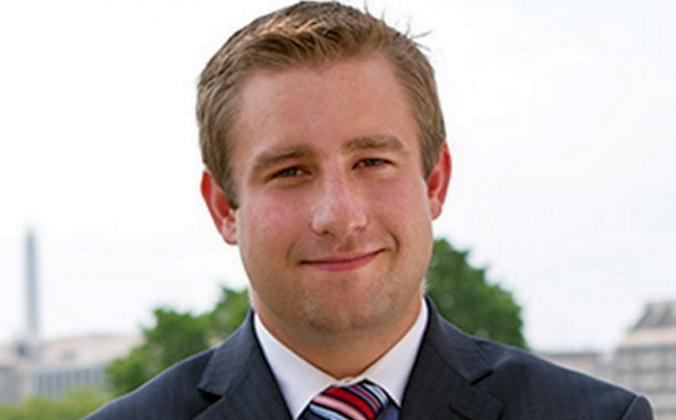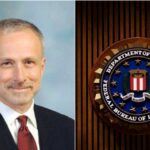By Tom Ozimek
News Analysis
Recent revelations that the FBI is in possession of additional materials from the work computer of Seth Rich, a Democratic National Committee (DNC) staffer murdered in 2016, has prompted renewed speculation about whether the claim that Rich—not Russia—was the source of DNC files that WikiLeaks shared to damage Hillary Clinton’s presidential bid is either a baseless conspiracy theory or a true story whose final chapter remains cloaked in secrecy.
The latest twist in the years-long saga over the theory that Rich’s computer was connected to a leak of DNC emails provided to WikiLeaks comes in the form of an admission made in a sworn declaration (pdf) by an FBI agent on Dec. 9.
Michael Seidel, who’s the section chief of the Record/Information Dissemination Section (RIDS), Information Management Division (IMD), at the FBI office in Winchester, Virginia, said in the declaration that the agency is in possession of a “three (3) page forensic report detailing the actions performed by an outside entity to image the work laptop.”
The new records were found after the records office contacted an unnamed FBI special agent during its search for Rich’s work computer, according to Seidel.
The FBI has asked a court to keep the forensic report—along with three other records found—shielded from Brian Huddleston, a Texas resident who filed a lawsuit against the bureau for ignoring a Freedom of Information Act (FOIA) request for records on Rich.
In a court filing on Dec. 9 (pdf), the FBI said it has already released “all reasonably segregable non-exempt information” from records in response to Huddleson’s request and that it wants the keep the remaining records under wraps.
The reason the FBI gave for wanting to keep the information from being disclosed is a combination of factors, including personal privacy concerns and the possibility that disclosure could jeopardize ongoing law enforcement investigations.
In 2020, for the first time, the FBI admitted it had files from Rich’s computer, some of which were later released to Huddleston and made public. Among them were documents that appear to suggest that someone could have paid for his death.
The FBI has asked a court to give the agency 66 years to produce information from Rich’s laptop, a rate of around 500 pages per month.
The slaying of Rich, who was the DNC’s voter expansion data director, remains unsolved.
The Murder
In the early morning hours of July 10, 2016, the 27-year-old Rich was found with two fatal gunshot wounds near his home in Washington, D.C.
The Metropolitan Police Department, which is the lead investigating agency into his death, believes he was the victim of a robbery gone wrong.
Police said there were bruises on Rich’s hands and face, suggesting a struggle, although his wallet, watch, and cell phone were still on his person when the police arrived on the scene.
His murder, which remains under investigation, fueled widespread media coverage, especially after WikiLeaks founder Julian Assange suggested that Rich was the WikiLeaks source for the leaked 2016 presidential campaign DNC emails.
Rich’s family has called that notion a conspiracy theory.
The Leak
The death of Rich might not have drawn the kind of scrutiny it has were it not for the fact that about two weeks later, WikiLeaks released a trove of tens of thousands of emails from top DNC officials.
Several of the emails showed that the DNC, which was supposed to be neutral, grew increasingly hostile toward the campaign of Sen. Bernie Sanders (I-Vt.), who was Clinton’s key rival in the primaries, and strategized how to draw support away from the Vermont senator.
The fallout from the leak was significant, with then-DNC Chairwoman Debbie Wasserman Schultz announcing her resignation shortly thereafter.
Amid speculation about the source of the leak, Clinton’s campaign manager, Robby Mook, told ABC News at the time that he was told by unnamed “experts” that it was the Russians.
“Experts are telling us that Russian state actors broke into the DNC, took all these emails, and now are leaking them out through these websites,” Mook said, adding that the experts said “this was done by the Russians for the purpose of helping Donald Trump.”
The Kremlin denied involvement, while the founder of WikiLeaks suggested Rich may have played a role.
The Suggestions
As the fallout from the DNC emails and Rich’s death grabbed headlines, Assange suggested that the DNC staffer might have had a role in the leak.
WikiLeaks even offered a $20,000 reward for information related to his slaying.
“Whistleblowers go to significant efforts to get us material, and often very significant risk,” Assange said in an interview with the Dutch television program Nieuwsuur. “There’s a 27-year-old who works for the DNC, who was shot in the back, murdered.”
The interviewer pressed Assange to explain his suggestion, but the WikiLeaks founder refused to identify Rich as a source, saying, “We don’t comment on who our sources are.”
Assange also hinted at Rich’s involvement in an interview on Fox News on Aug. 25, 2016, when he discussed WikiLeaks’ reward for information related to the DNC staffer’s death.
“We’re very interested in anything that might be a threat to alleged WikiLeak sources,” Assange told Megyn Kelly of Fox News.
“We’re not saying that Seth Rich’s death necessarily is connected to our publication. That’s something that has to be established,” he continued.
“But if there’s any question about a source of WikiLeaks being threatened, then people can be assured that this organization will go after anyone who may have been involved in some kind of attempt to coerce or possibly, in this case, kill a potential source,” Assange added.
A few weeks prior to the Fox interview, Assange told CNN that WikiLeaks likes “to create maximum ambiguity as to who our sources are,” suggesting his statements about Rich could be part of an effort to protect sources at a time when the leak was under close scrutiny.
Still, Assange’s words stoked speculation of Rich’s involvement.
The Russian Hackers?
The WikiLeaks releases served as part of the predicate for the opening of an investigation into the Trump campaign, an FBI probe that later morphed into the Russia probe headed by special counsel Robert Mueller.
While Assange suggested Rich had leaked the DNC files to WikiLeaks, Mueller concluded that the real source of the leaked emails was Russian hackers.
In an indictment (pdf), Mueller alleged that Russian hackers broke into a DNC Microsoft Exchange server and stole emails on or about May 25 and June 1 of 2016.
However, this did not put to rest speculation about Rich’s possible involvement as the only evidence offered in Mueller’s indictment is that an alleged Russian operative searched for Microsoft Exchange Server commands around the same time.
Mueller softened the language around the alleged theft by the time he issued his final report (pdf), claiming that the Russian operatives “appear to have stolen thousands of emails and attachments, which were later released by WikiLeaks.”
Mueller’s report also put Assange at the epicenter of rumors about Rich and the DNC leaks.
“As reports attributing the DNC and DCCC hacks to the Russian government emerged, WikiLeaks and Assange made several public statements apparently designed to obscure the source of the materials that WikiLeaks was releasing,” Mueller’s report states.
A firm investigating the DNC situation, Crowdstrike, alleged that the committee’s servers were hacked by Russian actors, but a transcript declassified in May 2020 showed the firm had no direct evidence of that claim.
Shawn Henry, the president of CrowdStrike Services, told the House Intelligence Committee in late 2017 that his firm had no direct evidence that Russian hackers stole any data from the DNC, according to the declassified interview transcript.
“There’s not evidence that they were actually exfiltrated,” Henry said. “There’s circumstantial evidence, but no evidence that they were actually exfiltrated.”
CrowdStrike’s involvement in the events surrounding the alleged DNC hack has long been the subject of controversy.
Some facts about the firm’s involvement have been disputed by key players, including Henry, who told the House Intelligence Committee that he was not aware of the DNC or CrowdStrike ever denying any FBI requests related to the server hack.
Henry’s testimony contradicted what then-FBI Director James Comey told the Senate Intelligence Committee in January 2017.
Comey told senators that the FBI sought and was repeatedly denied access to the physical DNC servers.
Mueller concluded his 22-month investigation finding insufficient evidence that anyone on the Trump campaign colluded with Russia to influence the 2016 election.
Ivan Pentchoukov and Zachary Stieber contributed to this report.






